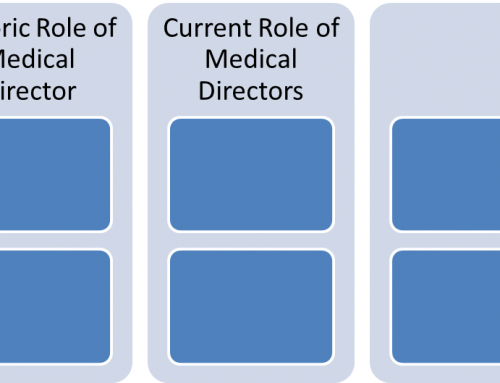 As healthcare continues to change, so do some of the roles within the industry, but no role has perhaps experienced a shift quite as significant as the Medical Director. This position has taken on a dramatic evolutionary shift in responsibility and scope due to healthcare reform (and re-reform) and an industry which is now focused on efficiently driven quality care. Understanding the successful medical director characteristics helps with long-term retention and recruitment.
As healthcare continues to change, so do some of the roles within the industry, but no role has perhaps experienced a shift quite as significant as the Medical Director. This position has taken on a dramatic evolutionary shift in responsibility and scope due to healthcare reform (and re-reform) and an industry which is now focused on efficiently driven quality care. Understanding the successful medical director characteristics helps with long-term retention and recruitment.
One could state that the clinical emphasis of the position of Medical Director is a thing of the past, and that today’s Medical Director needs to embody a newly rounded individual who is not singularly focused on clinical decision making and policy creation. Dighton Packard, MD, Chief Medical Officer, EmCare wrote a great article, drawing on his own experiences, outlining characteristics of great medical directors for www.beckershospitalreview.com. His insights apply to medical directors in both payer and provider settings.
Many physicians are also natural problem solvers, so moving into executive roles and attempting to improve the delivery of healthcare is something many find appealing. But moving from caregiver to leader isn’t always easy. And please note I use the term “leader” and not “manager.” Those are two very different terms. – Dighton Packard, MD, Chief Medical Officer, EmCare
Dr. Packard recommends these five characteristics: Listening, Vision, Integrity, Empathy, and Optimism.
- Listening: “So when I meet a doctor who is a good listener, who really understands and processes what others say, I know he or she has the potential to be an excellent leader.”
- Vision: A good leader is able to manage the current challenges and the daily grind while still being able to step back and focus on the big picture over time.
- Integrity: “A good medical leader remembers why they’re there and holds tightly to the moral compass that initially called them to become healers.”
- Empathy: “In a healthcare setting, we often empathize greatly with patients but neglect to extend the same consideration to our coworkers, who may need it just as much.”
- Optimism: “The leaders that can stand and face them with cheer and excitement and view these changes as opportunities to improve will inspire those around them.”
One word of warning, beware the Authoritarian.
In an article for amednews.com, Hospitals’ new physician leaders: Doctors wear multiple medical hats, they looked at successful medical director characteristics from a different point of view.
Other Successful Medical Director Characteristics
Clinical practice tends to be more autonomous than administrative work. Experts say physicians moving into leadership positions at hospitals and large health systems and those who aspire to these kind of roles should be able to:
- See the big picture beyond the patient at hand.
- Collaborate with people at all levels of the health system.
- Appreciate multiple perspectives.
- Think long term.
- Convince a significant number of people of the validity of an idea without issuing orders.
- Be comfortable making some people unhappy.
- Communicate and listen well.






